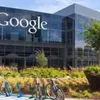Google earned $4.7B from news in 2018 even as media groups' income shrunk: study
The California-based internet giant made the amount from the work of news publishers in 2018 via search and Google News, it said.
Google made a whopping $4.7 billion from the work of journalists last year via search and Google News, taking a huge cut from the online ad revenue of media houses which lost a crucial source of income, resulting in many of them getting shrunk or closed, a media report said.
News is a significant part of Google's business, according to a study released on Monday by the News Media Alliance (NMA), which represents more than 2,000 newspapers across the US.
The journalists who create that content deserve a cut of that $4.7 billion, President and Chief Executive of the NMA, David Chavern, was quoted as saying by The New York Times.
The California-based internet giant made the amount from the work of news publishers in 2018 via search and Google News, it said.
1560158165302.png?fm=png&auto=format)
That $4.7 billion is nearly as much as the $5.1 billion brought in by the United States news industry as a whole from digital advertising last year, the report said.
The NMA cautioned that its estimate for Google's income was conservative. For one thing, it does not count the value of the personal data the company collects on consumers every time they click on an article like this one.
"They make money off this arrangement and there needs to be a better outcome for news publishers," Chavern said.
"The study blatantly illustrates what we all know so clearly and so painfully," said Terrance CZ Egger, the Chief Executive of Philadelphia Inquirer PBC, which publishes The Philadelphia Inquirer, The Philadelphia Daily News, and philly.com.
"The current dynamics in the relationships between the platforms and our industry are devastating," Egger said.
The NMA is making the study public in advance of a House sub-committee hearing on Tuesday on the inter-relationship of big tech companies and the media.
Some 40 percent of the clicks on Google's trending queries are for news. That's content that Google does not pay for, the report said, although it often presents headlines from news outlets verbatim.
Egger said the big tech companies should show some appreciation for the content that news publishers provide.
Two giant companies Alphabet, which is Google's parent, and Facebook are major distributors for news publishers.
The two of them ferry more than 80 percent of external traffic to various sites. That is a far cry from the analog days, when media barons controlled how their publications reached the public and collected all the ad income they generated.
But Google and Facebook don't steer news consumers to news sites out of altruism. Rather, their middleman role allows them to take a huge proportion of online ad revenue. As a result, legacy news outlets have lost a crucial source of income over the last couple of decades, which has led them in most cases to shrink or disappear.
The big tech companies "like this business. It's a good business, where you write for them," Chavern added.
Chavern said he hoped that an outcome of any conversation generated by the study would be the passage of the Journalism Competition and Preservation Act, which would give news publishers a four-year antitrust exemption, allowing them to collectively bargain with the owners of online platforms over revenue splitting.
"News is an important form of content that sustains civic society. I think everybody from readers to writers to politicians understands that if journalism goes away, that's a horrible outcome for whether we're able to sustain the republic," he said.
Google, which did not reply to a request for comment, keeps much of its data about search and revenues in a black box alongside its algorithm, the NYT added.


1560158165302.png?mode=crop&crop=faces&ar=2%3A1&format=auto&w=1920&q=75)
_(1)1559914904431.png?fm=png&auto=format&h=100&w=100&crop=entropy&fit=crop)






